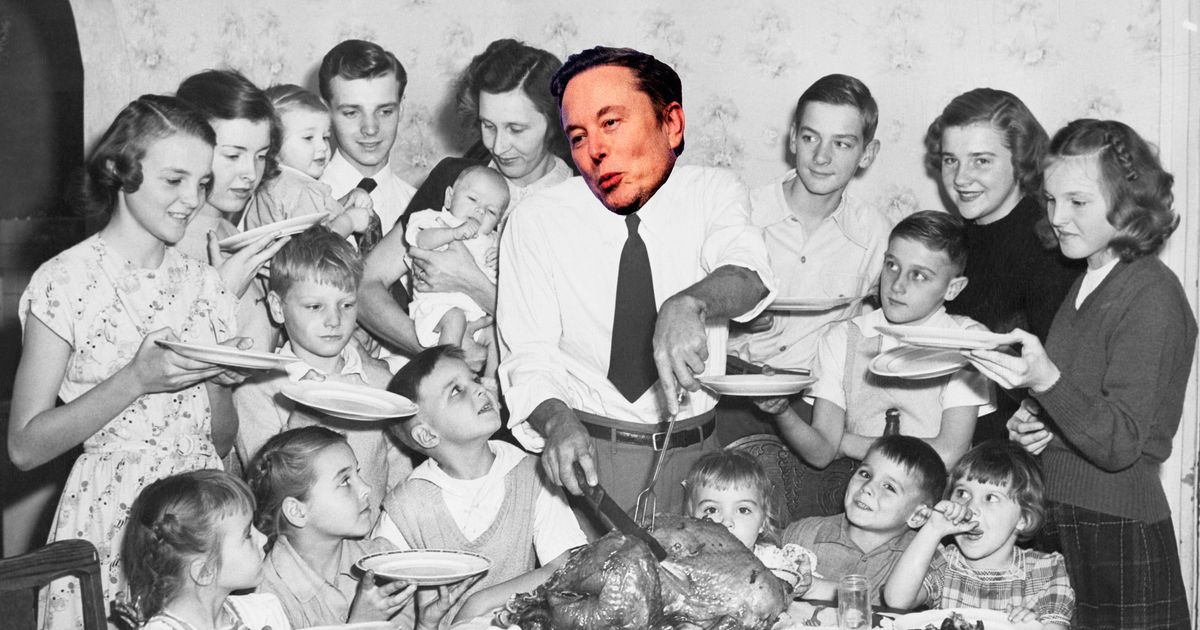The World Doesn’t Need More Elon Musk Babies

```html
The Pronatalist Paradox: Why More Babies Isn't Always the Answer
Musk, NatalCon, and the Rise of Pronatalism
Elon Musk's obsession with fertility has ignited a pronatalist movement, echoing his anxieties about declining birth rates and a supposed impending apocalypse. This movement found a platform at the Natal Conference (NatalCon), attracting figures like Simone Collins, a self-proclaimed Techno-Puritan who says she's willing to die in childbirth.
While Collins' extreme views may be performative, her commitment to having a large family raises questions about the motivations behind pronatalism. Is it truly about societal well-being, or something more sinister?
NatalCon's Dark Side
NatalCon isn't just about celebrating families. Past conferences have featured speakers with explicitly racist, homophobic, and misogynist views, revealing a troubling connection between pronatalism and the far-right. Figures like the "Raw Egg Nationalist" highlight the movement's association with white supremacist ideologies.
While some pronatalists attempt to distance themselves from these extremist elements, the underlying concern with "cultural decline" and the need for "more, better people" remains a common thread.
Reproductive Justice: A Different Approach
In contrast to the often-reactionary nature of pronatalism, reproductive justice offers a different perspective. Born from the struggles of Black women who recognized the limitations of traditional "pro-choice" rhetoric, reproductive justice emphasizes the need for holistic support for women and families.
As scholar Dorothy Roberts pointed out, true reproductive freedom requires more than just the legal right to choose. It necessitates access to affordable healthcare, safe living conditions, and freedom from systemic oppression.
The Limitations of Liberal Pronatalism
Some liberal and leftist voices have attempted to reclaim pronatalism, arguing that supporting families is essential for social well-being. However, these arguments often fail to address the complexities of reproductive justice.
Simply "giving families money," as some suggest, is insufficient without addressing underlying systemic inequalities and ensuring access to comprehensive reproductive healthcare, including abortion.
The Personal is Political
My own upbringing in a pronatalist subculture showed me the limitations of a worldview that prioritizes babymaking above all else. True reproductive freedom means recognizing that having children is a deeply personal choice, one that should be made without coercion or judgment.
Beyond Babies: A Vision for the Future
The future of humanity isn't about simply having more babies. It's about creating a society where everyone has the freedom and support to make informed choices about their reproductive lives.
Reproductive justice offers a roadmap for achieving this goal. It emphasizes the importance of not just choice, but also equity, access, and liberation. Until we embrace this broader vision, any talk of pronatalism rings hollow.